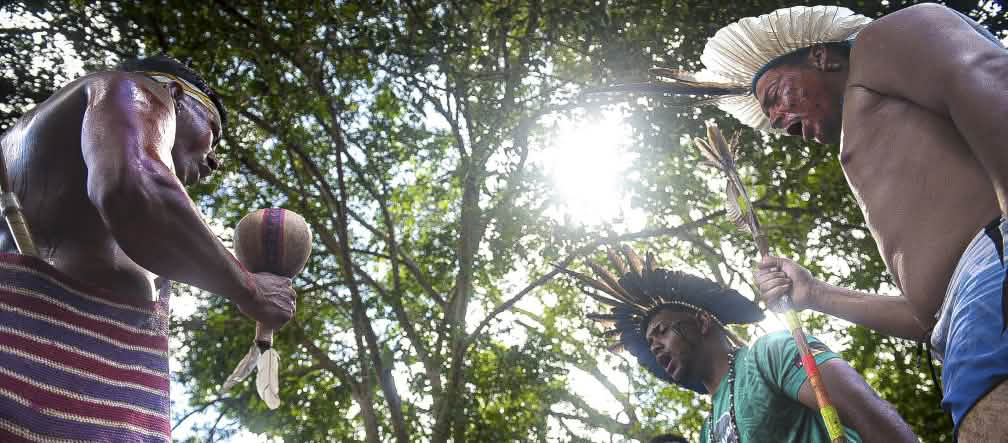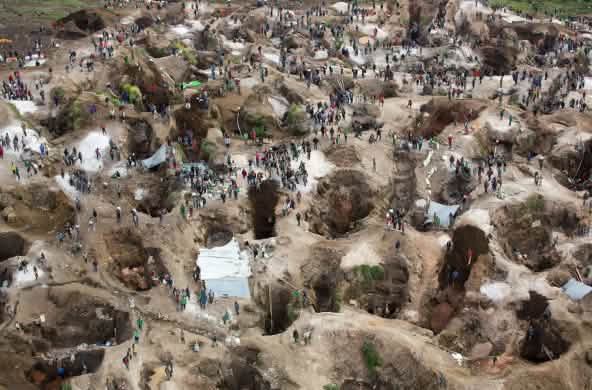
Completed campaign
Pygmy sloths: here today, extinct tomorrow?
It's hard to imagine a more disarming creature than the pygmy sloth. About half the size of a cat and completely helpless against human predation, it is one of the world's most endangered mammals. Tell the Panamanian authorities to protect them NOW.
To: Director of The National Environmental Authority of Panama (ANAM), Mirei Endara Heras; Management of Protected Areas and Wildlife, ANAM, Zuleika Finch Mendoza; Sub administrator, ANAM, Emilio Sempris; ANAM Secretary General Felix Wing Solis
“Protect the pygmy sloth before it's too late.”Isla Escudo de Veraguas, an isolated island off Panama's Caribbean coast, is home to the critically endangered pygmy sloth. This precious species is being driven to extinction, not only by habitat degradation, but also by the local fishermen who visit the island seasonally: rather than eating their profitable catches, they are reported to be eating the sloths! Their population has collapsed from around 500 in 2001 to only 70 at the last official count in 2012. Two or three more fishing seasons will be the end of the pygmy sloth.
Many groups have attempted to solve this appalling problem over the past few years. The leaders of the indigenous Ngäbe-Buglé have worked with NGOs to educate their people about the value of preserving this special species and they have taken this mission to heart. Other local and international charities have donated resources (patrol boats, ranger uniforms, training) to establish a permanent presence of park rangers to protect the sloths. But the human complexities of cultures and local politics have made it difficult for these groups to work together, so this program has not yet been implemented and the sloths are still being poached.
Since the park ranger program is the most immediate way of keeping this species from becoming extinct within the next couple of fishing seasons, please join with us in asking the director of the National Environmental Authority of Panama (ANAM) to take a leadership role in coordinating the local and international stakeholders who are invested in saving these sloths.
Tell ANAM to do everything in their power to provide for the immediate protection of the pygmy sloths. The existence of this lovely creature rests with them, and its extinction will be on their watch. Let's not stand by and allow the demise of this precious, beguiling species.
To: Director of The National Environmental Authority of Panama (ANAM), Mirei Endara Heras; Management of Protected Areas and Wildlife, ANAM, Zuleika Finch Mendoza; Sub administrator, ANAM, Emilio Sempris; ANAM Secretary General Felix Wing Solis
Ladies and Gentlemen,
I am concerned about the status of the rapidly disappearing three-fingered pygmy sloths on Isla Escudo de Veraguas, Panama. This small island is the only place this rare species exists in the world and their numbers have been reduced from around 500 in 2001 to only 70 at the last official count in 2012. I am horrified to know that this valuable species is becoming extinct, not only because of human encroachment and the resultant habitat degradation, but also because local fishermen who visit the island seasonally and don’t want to eat their profitable catches are eating the sloths instead!
Many others feel this horror. The following groups have attempted to solve this appalling problem over the past few years: the leaders of the indigenous Ngäbe-Buglé have worked with NGOs to educate their people about the value of preserving this special species and they have taken this mission to heart; local and international charities have donated resources (patrol boats, ranger uniforms, training) to establish a permanent presence of park rangers to protect the sloths. But the human complexities of cultures and local politics have made it difficult for these groups to work together, so this program has not yet been implemented and the sloths are still being poached. What else can explain the drastic reduction in their numbers in less than 12 years?
Since the park ranger program is the most immediate way of keeping this species from becoming extinct within the next couple of fishing seasons, I am asking you, as the directors of ANAM, to take a leadership role in coordinating the local and international stakeholders who are invested in saving these sloths. Stakeholders include the Ngäbe-Buglé, local and international environmental NGOs, charities, scientists, researchers and zoo conservationists. As you know, with Escudo Island being part of the Ngäbe-Buglé Comarca, it is essential that they play a central role in all decisions that are made and participate in any sloth conservation plans. For an effective model of this kind of community-based conservation, see the successful work of John Kasaona: http://www.wildoptimism.com/tag/john-kasaona/
The role that I am asking you to play is a delicate one: not to take over and force a resolution to this crisis, but to consult with and gather together all of these stakeholders and work with them towards the common goal of saving this species.
But there does need to be a sense of urgency in training and employing an adequate number of park rangers. Some action must be taken before then to keep the few remaining sloths from being poached. It is my hope that you are as concerned as are the millions of sloth lovers all over the world about this tragic certainty: that two or three more fishing seasons will be the end of the pygmy sloth. Since your organization oversees the protection of the environment in Panama, the protection of this lovely creature rests with you, and its extinction will be on your watch.
I approach you as a citizen of the world and implore you to be the ones who ensure that this rare and unstudied species will not be allowed to disappear. Please do everything in your power to provide for the immediate protection of the pygmy sloths.
Sincerely,

